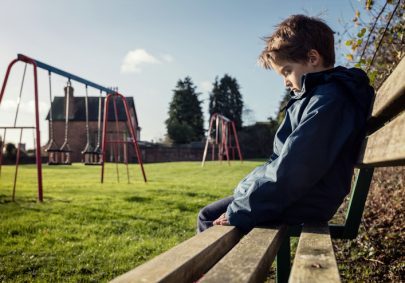
CREDIT: This story was first seen in the Grimsby Telegraph
More children were excluded from school this spring term than in any other over the last five years, the Grimsby Telegraph reports.
The alarming number of students either permanently and or temporarily excluded from school between January and April topped 400, an average of six every day.
In total between January and April, a school term of just 67 days, 391 students were temporarily excluded from school in North East Lincolnshire, with 19 banned from returning to their current school all together.
However, some students were excluded on a fixed term basis more than once, with 598 temporary exclusions issued in the 2017 spring term.
That accounts to more than 1,100 school days lost because of things like bad behaviour, physical abuse, damage and even drug-related incidents.
The figures, detailed in a report set to go before North East Lincolnshire Council’s children and lifelong scrutiny panel on Thursday, reveal that the number of children being excluded from school has been on an incremental rise for the last five years.
Whilst 598 fixed exclusions were issued in the 2017 spring term, 547 were handed out in the same period last year, a huge jump from 347 in 2015.
The actual number of individuals temporarily banned from going to school has also soared in recent years. 240 children were issued with fixed period exclusions in spring 2015, with 342 over the same period last year, before the figure increased still this year to 391.
And the number of pupils permanently excluded has almost doubled in just three years. Whilst 19 students were banned from the school’s classrooms in spring this year, 12 were excluded from school over the same period last year, a rise from 10 in spring 2015.
Of those excluded in this year, 15 were secondary school students and four were aged under 12 and studying at a primary school.
The council documents also show why each of these students were told not to return to their school.
One student was excluded for a drug-related incident whilst three were banned for physically abusing an adult. Two children had caused damage, three had displayed dangerous behaviour, and one had physically abused a classmate.
The rest were excluded for things like violence, verbal abuse and bad behaviour.
Andy Motley, divisional secretary for the National Union of Teachers (NUT) North East Lincolnshire branch, says that poor student behaviour puts teachers under “excessive levels of stress”.
He said: “Due to the extreme pressures that teachers are already under, poor behaviour can cause stress levels to rise.
“That impacts on the learning of the majority of the rest of the students.
“In the Grimsby area, government cuts to education have been some of the highest in the country and means that schools have had to increase class sizes and reduce staffing levels.
“Exclusions are seen as the very last resort. Teachers want to see children in school. That’s the whole point of it.”
When looking at the figures available for school exclusions in the spring term over the last three years, it can be seen that over 3,000 school days have been lost through school leaders seemingly being left with no choice but to ban certain pupils from going to school.
The council says it continues to support secondary academies to work collaboratively to address the rise in permanent exclusions, and that the rise is not only happening in North East Lincolnshire, but in other areas too.
Don’t forget to follow us on Twitter, like us on Facebook, or connect with us on LinkedIn!

Be the first to comment